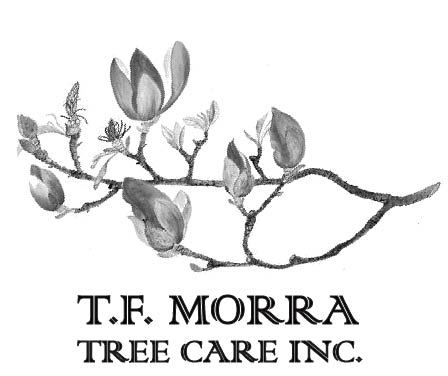FAQ - Winter & Gypsy Moth
/
As we look forward towards Spring, the topic on the town quickly shifts focus towards making sure our trees are protected against the well known winter and gypsy moth that have become synonymous with Springtime in New England. It is around this time that I start to receive many questions on the matter, and as such I would like to share some information that may answer many of the questions you may have.
Q: What is the difference between winter moth and gypsy moth?
A: Winter and gypsy moth caterpillars differ in several ways, most notably in timing, size and appearance. Winter moths are small, green caterpillars that emerge earlier in the Spring. Gypsy moths are larger, fuzzy caterpillars that are black and often striped. They also appear later in the season.
Q: When is the ideal time to treat my trees?
A: Treatment of winter and gypsy moth is entirely subject to factors under Mother Nature's Control. Generally speaking, the typical treatment period can begin as early as late April, through as late as mid June. Factors that impact timing of treatment include the general weather, rain, temperature, amount and direction of wind, as well as how far the trees have leafed out. Not all areas in our state will leaf out simultaneously; Similarly, not all trees leaf out at the same time. We can typically expect the coastal areas, as well as areas of Western Rhode Island to leaf out a little later than more central areas in the state. In addition, properties that are known to have issues with both species of moths may require a second application.
Q: My tree has not yet been sprayed, and it looks like there is already damage. Is it too late?
A: This may be one of the most common concerns that we hear. It is important to note that when your trees first begin to leaf out, you may see some very preliminary caterpillar damage. This feeding occurs within the buds by premature caterpillars. During this time, the caterpillars cannot be reached by treatment sprays. As such, we ask that you keep this in mind before assuming that it is an emergency. If you feel as though you are seeing extensive damage, certainly let us know, however it is unlikely during the beginning of the bloom.
Q: Will I have an appointment?
A: No. Due to how fluid and unpredicatable the Spring time weather is, we cannot possibly schedule our sprayings. Many decisions need to be made in field based upon the current conditions. I divide our winter moth clientele into geographical areas, and will notify the clients in each area of a general idea of when they may be able to expect treatment to occur. Again, these time frames are fluid and not to be relied upon as any hard date.
Q: Are the products being used safe?
A: Yes - TF Morra Tree Care prides itself on upholding standards that promote the overall wellfare of our ecosystem. As such, we use products that adhere to these standards. Should you have any questions regarding our products, please feel free to let me know. Tom or I would be happy to answer them and provide you with literature about them.
Q: Do all of my trees need to be sprayed?
A: Not necessarily. We typically address the species that are hosts of winter and gypsy moth caterpillars, and occasionally others they may turn to.
Q: What if it rains soon after my property has been treated?
A: Generally this in not an issue. The products have a surfactant property and are locally systemic - absorbing within 30 - 60 minutes of application.
Q: Do I need to avoid my yard after the trees have been sprayed?
A: You may notice an aroma to the spray, but you certainly do not need to avoid your yard. For that day, I would just not allow children or pets to touch or lick the trees - they probably won't taste too good!
Q: How can I make sure that my property will be treated next year as well?
A: Due to the fact that winter and gypsy moth are an annual issue, as well as the popularity of the program, if you have been treated before, you are automatically enrolled in treatment each year. We operate this program on an opt-out basis; we will continue to treat until you tell us not to. This offers our clients the protection of knowing that the property will be accounted for when we plan to spray each season.
Planning for winter and gypsy moth treatment occurs long before they actually appear. You do not want to wait until you see caterpillars to act - call us for a quote today!
Stephanie Smolenski
Coordinator

